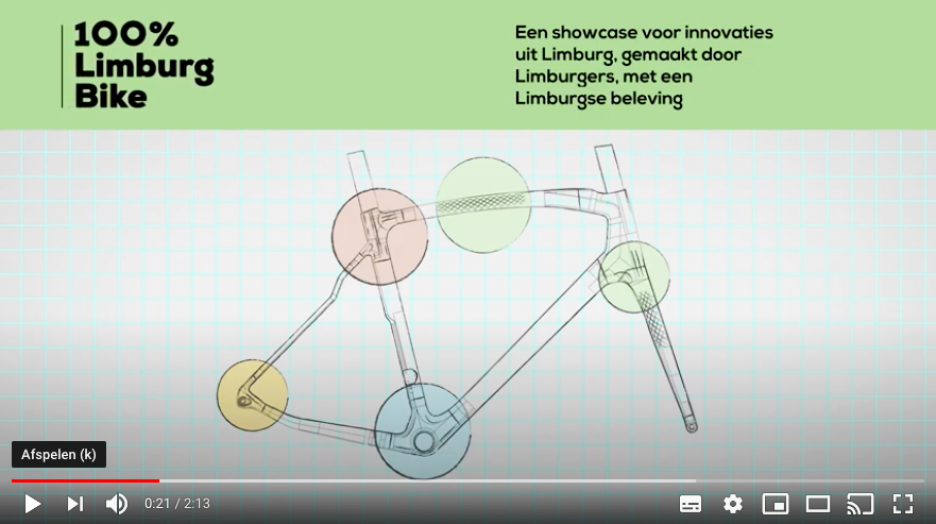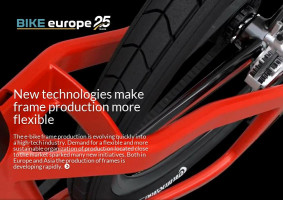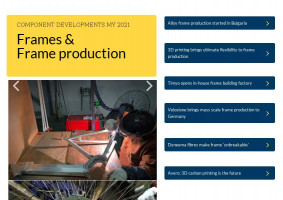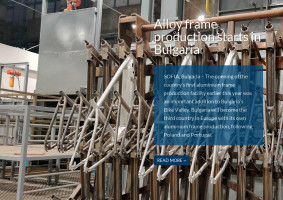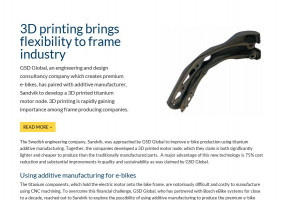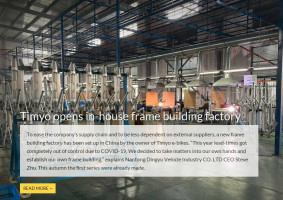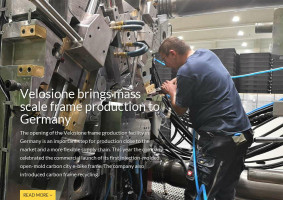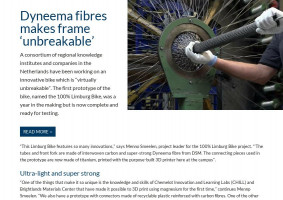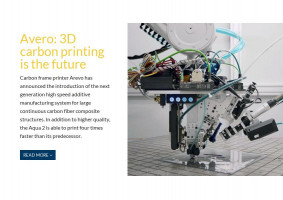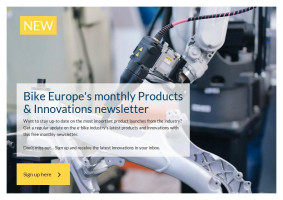Dyneema fibres makes frame ‘unbreakable’
A consortium of regional knowledge institutes and companies in the Netherlands have been working on an innovative bike which is “virtually unbreakable”. The first prototype of the bike, named the 100% Limburg Bike, was a year in the making but is now complete and ready for testing.
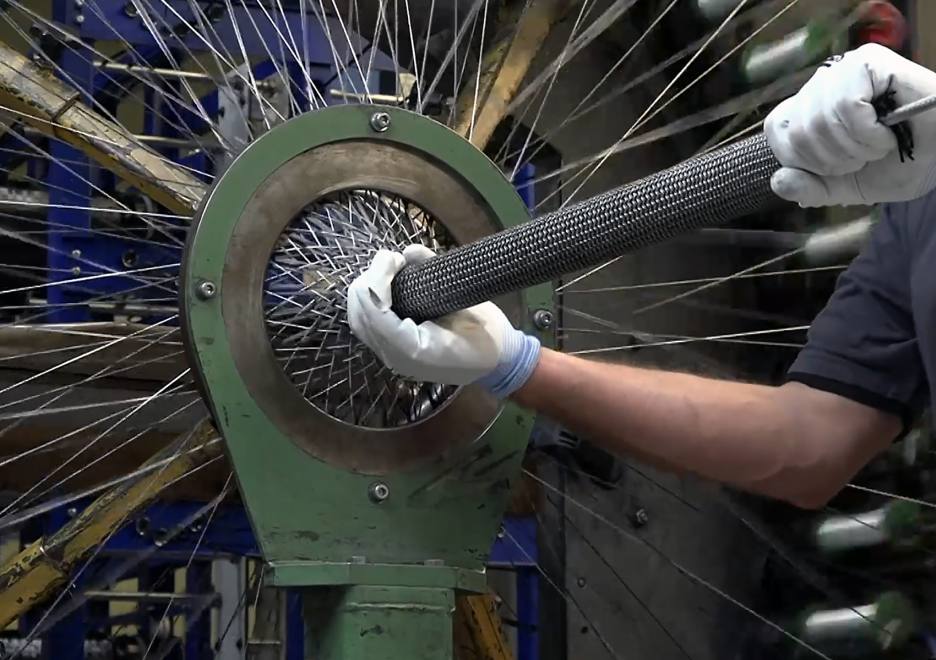
Read more
“This Limburg Bike features so many innovations,” says Menno Smeelen, project leader for the 100% Limburg Bike project. “‘The tubes and front fork are made of interwoven carbon and super-strong Dyneema fibre from DSM. The connecting pieces used in the prototype are now made of titanium, printed with the purpose-built 3D printer here at the campus”.
Ultra-light and super strong
“One of the things that make it so unique is the knowledge and skills of Chemelot Innovation and Learning Labs (CHILL) and Brightlands Materials Center that have made it possible to 3D print using magnesium for the first time,” continues Mennp Smeelen. “We also have a prototype with connectors made of recyclable plastic reinforced with carbon fibres. One of the other innovations is the development of a new bio-based adhesive joint to attach the connecting pieces to the frame. The combination results in a super-strong yet ultralight frame that is virtually unbreakable.”
A consortium of several regional companies has been involved in the development of the first prototype, including carbon specialists Eurocarbon and CeraCarbon. They have succeeded in interweaving the DSM fibre Dyneema with carbon using a new method. Belgian Cycling Factory, owner of the Ridley brand, played a decisive role in the design.
Circular materials
“This is a unique bike,” says former professional road cyclist Bram Tankink, closely involved with the Limburg Bike project and sustainability ambassador at Brightlands Chemelot Campus. “What has made it so unique are the materials used, the cooperation between SMEs and knowledge institutes, and the focus on sustainability and use of circular materials. Circularity is the centre of attention and an important pillar of the campus. Another unique aspect is that the frame is tailor-made to the user. The variable angles and lengths of the tubes mean that they can be adjusted so you get a perfect fit with your bike. There is also a choice of different materials and you can even put it together using your preferred colours. Each bicycle will be able to be made to order.”
Testing and production phase
The Limburg Bike project involves an investment of over €1.8 million, funded by contributions from the Brightlands Chemelot Campus, the Province of Limburg and the European ERDF OPZuid subsidy program. The prototype of the 100% Limburg Bike will be in the testing phase for the coming months, first to optimise the design in terms of weight and stiffness, and then to test it among experienced amateur cyclists.
The 100% Limburg Bike is expected to go into production next summer according to Menno Smeelen, but no details are yet known about the price. “A lot of interest has already been shown in the bicycle, and after the initial announcement in 2019 we received a lot of responses, even from as far away as America and Asia. There’s absolutely a market for a personalised bike,” concludes Menno Smeelen.
